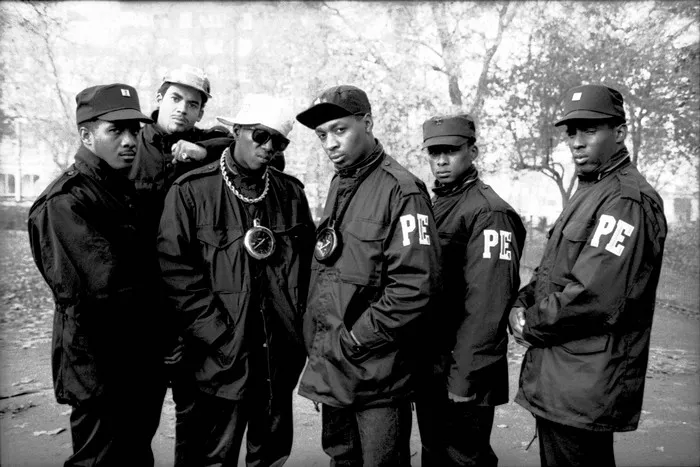In the world of music, genres often evolve and blend, giving rise to new subgenres that captivate audiences with their unique sounds and styles. Two such subgenres are hip-hop and hip pop. While both are closely related to the larger hip-hop culture, there are distinct differences between the two. In this article, we will delve into the nuances that set hip-hop and hip pop apart, exploring their origins, characteristics, and cultural influences.
1. Understanding Hip-Hop
Hip-hop is a cultural movement that originated in the Bronx, New York, in the 1970s. It encompasses various elements, including rap, DJing, graffiti, and breakdancing. At its core, hip-hop is about self-expression, social commentary, and artistic creativity. Rap, as a vocal style, is one of the key elements of hip-hop, where artists deliver rhythmic speech or chanting over a beat.
2. The Birth of Hip Pop
Hip pop, on the other hand, is a subgenre that emerged as a fusion of hip-hop and pop music. It gained popularity in the late 1990s and early 2000s when hip-hop elements began to blend with mainstream pop sensibilities. Hip pop songs often incorporate catchy hooks, melodic choruses, and polished production, making them more accessible and appealing to a wider audience.
3. Emphasis on Catchy Hooks and Melodies
One of the primary distinctions between hip-hop and hip pop lies in their musical characteristics. Hip-hop is known for its emphasis on lyrical content, wordplay, and storytelling. While hooks and choruses are essential in hip-hop, they often serve as a complement to the verses, which are the core of the song.
Conversely, hip pop places a stronger emphasis on catchy hooks and melodic choruses. These elements take center stage, and the lyrical content may be more straightforward and focused on themes that resonate with a broader audience.
4. The Role of Commercial Appeal
Commercial appeal is another significant factor that differentiates hip-hop and hip pop. Hip-hop, at its roots, is often driven by a desire for artistic expression and social commentary. While commercial success is important, it is not the primary focus for many hip-hop artists, especially those who prioritize authenticity and staying true to their roots.
Hip pop, on the other hand, is often designed with commercial appeal in mind. The fusion of hip-hop elements with mainstream pop sensibilities aims to reach a wider audience and achieve chart success. As a result, hip pop songs may be more polished and radio-friendly, aligning with the current trends in the music industry.
5. Subject Matter and Themes
Hip-hop is known for addressing a wide range of social and political issues, reflecting the experiences and struggles of marginalized communities. From systemic racism to poverty and inequality, hip-hop has served as a platform for raising awareness and advocating for change.
In contrast, hip pop may focus on lighter themes, such as love, relationships, and personal experiences. While some hip pop songs may still contain meaningful messages, the overall tone and subject matter tend to be more lighthearted and relatable.
6. Cultural Impact and Authenticity
Hip-hop has had a profound cultural impact, shaping fashion, language, and social movements. The genre’s emphasis on authenticity and storytelling has allowed artists to connect with their audience on a deeper level, creating a sense of community and understanding.
On the other hand, hip pop, while influential in the mainstream music industry, has faced criticism for potentially diluting the authenticity of hip-hop culture. Some critics argue that the commercialization of hip pop may lead to a homogenization of the genre, losing the unique voice and cultural significance of traditional hip-hop.
Conclusion
In conclusion, hip-hop and hip pop are subgenres within the larger hip-hop culture, each with its distinct characteristics and cultural influences. Hip-hop, as a cultural movement, is about self-expression, social commentary, and artistic creativity, with rap being a crucial element. It addresses a wide range of social issues and has a profound cultural impact.
Hip pop, on the other hand, is a fusion of hip-hop and pop music, with a stronger emphasis on catchy hooks, melodic choruses, and commercial appeal. While it may be more accessible to a wider audience, some argue that hip pop may sacrifice the authenticity and social relevance of traditional hip-hop.
As music continues to evolve, both hip-hop and hip pop play essential roles in shaping the musical landscape and connecting with audiences worldwide. Each subgenre offers a unique perspective and artistic expression, reflecting the diversity and dynamism of the hip-hop culture as a whole. Whether rooted in social consciousness or designed for mainstream success, hip-hop and hip pop continue to resonate with listeners and leave a lasting impact on the world of music and culture.

